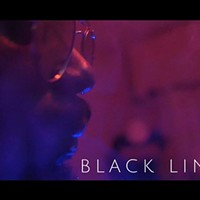Not only is Apollonia Khan — known behind the decks as DJ SPK — a regular on the Charlotte and Atlanta music scenes, but she's also a promotions assistant and DJ at 92.7, a podcaster at StereoTypez Radio, and the 30-year-old mother of an eight-year-old child named Marley. CL sat down with this ubiquitous music maker around town to find out how she made her way to the turntables.
Creative Loafing: How did you choose your DJ name?
Apollonia Khan: SPK stands for Sour Patch Kid because of my personality. I am kind of an asshole, and it's really funny to me, but I am actually a really sweet person when you get to know me. More than one person has told me, while I was in my 20s, that I was a Sour Patch Kid. When I decided to become a DJ, Apollonia was already taken as a stage name. I decided to go with SPK because it embodies who I am.
When I think of Apollonia, I think of the Vanity 6 character in Prince's Purple Rain. How did you get that name?
My name Apollonia is because my father is half Italian. I am actually named after the character from The Godfather, Michael Corleone's wife in Sicily: Apollonia Vitelli. My dad said that when he had a daughter he would name her Apollonia because she was the most beautiful woman he had ever seen on the big screen.
When did you fall in love with music?
My dad was into hip hop, so when I was around him I would hear Public Enemy, Ice Cube, Funkadelic, stuff like that. But I was raised by my mom and she mainly just listened to Mary J. Blige all the time. A lot of Biggie, Nas and other '90s East Coast hip-hop. So music was there, but it was not at the forefront. But thanks to some older cousins playing a cassette tape, I really fell in love with music when I heard the Nas song "The World is Yours" when I was like seven years old. When I heard that song, that was the first time music clicked for me and became a part of me. From there, I always knew I would do something with music, I just did not know what it was.
When was your transition from listening to music to actively making music on the turntables?
After my intern days [working with Janelle Monáe] I wound up getting married and getting pregnant with my daughter. I was just stuck at the house with the baby and I did not have anything to do [and] I started to collect music. Then my mind naturally wanted to stream it together and play it for people how I heard it in my head. So my husband at the time bought me my first little compact DJ controller turntable so I could just play around with it. I fell in love with it from there. I found the way I wanted to express myself through music.
How do you express yourself through your mixes?
In my head I will hear a song and that song will remind me of another song. Even before I knew how to DJ, my mind was blending songs together or triggering things that was related to a song that I thought would sound good with it. My brain just naturally thought of the blend. I do a lot of blending and beatmatching. It is just naturally how my brain is wired. When I hear something, it is kind of like a word association, but I call it a sound association.
What are some of your biggest challenges working in the Charlotte nightlife market?
I noticed that the Charlotte mainstream urban market is less experimental. Crowds are less likely to want to hear alternative versions of songs. If you do something different, a couple of people will come up to you and say they like it. But the majority of the crowd will just sit and stare at you. They just want hit after hit after hit, just the way they have heard it before. I have found a pocket of people, like in Plaza Midwood, artists who make an effort to be creative, but the mass society here is very much still conservative, even in their party style. As a DJ, I read the crowd and please the client and play accordingly, but I find solace in the artsy crowd to release and express myself and be creative. Places like LeAnna Eden Sessions, Funk-Shun, or Su Casa, opportunities like that give me the chance to show myself as a true DJ.
What are some of your biggest challenges as a female DJ?
I will start with the advantages first. People will hire you because you are a female DJ. Sometimes ego will come in and you say to yourself, 'I don't want to be hired just because of that.' However, it is a gig. If they hire you because you are a chick, cool.
The disadvantage is that you have to perform way better than the guys to get respect. People are still shocked to see a woman that can actually DJ. So we kind of have to break that stigma. Like any job we have to do better than our male counterparts to get respect. Oftentimes, my brothers in art will get all the credit for the show or a mix, even if I was a major part of the planning or the leader of the planning process. It is very frustrating.

